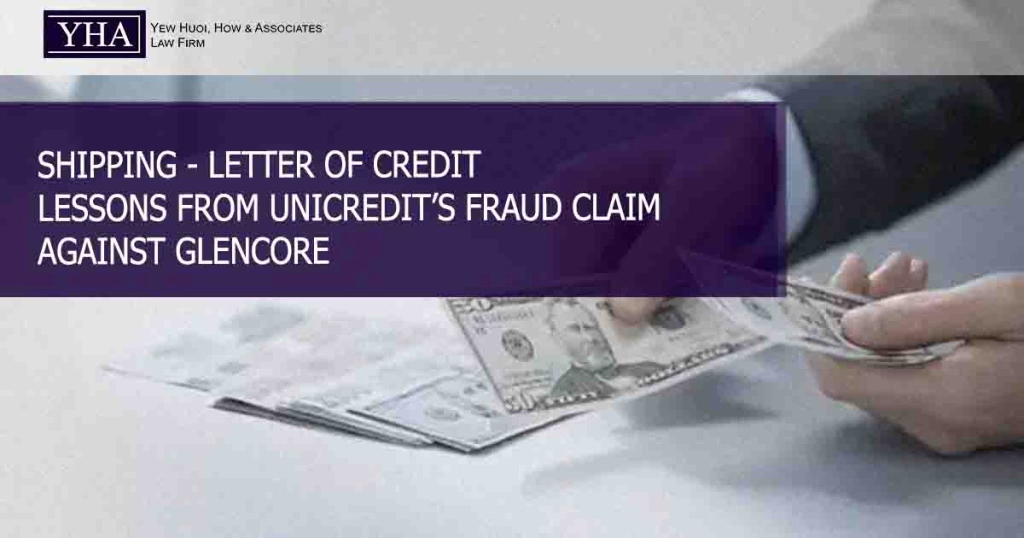- Summary and Facts:
In Unicredit Bank AG v Glencore Singapore Pte Ltd [2024] 2 Lloyd’s Rep 624, Unicredit Bank AG sought damages against Glencore Singapore Pte Ltd for alleged fraud and deceit concerning a sale and buyback transaction involving high-sulphur fuel oil. The transaction was supported by a letter of credit (LC), and Unicredit alleged that Glencore intentionally misrepresented its intentions under a Letter of Indemnity (LOI) while concealing a buyback arrangement. The Singapore Court of Appeal dismissed Unicredit’s claim, upholding the High Court’s finding that there was no fraud or deceit in Glencore’s actions. - Legal issues:
i. Whether Glencore made false representations to Unicredit in the LOI and concealed the buyback transaction?
ii. Whether Unicredit could invoke the fraud exception to challenge the principle of autonomy in letters of credit?
iii. Whether Glencore’s representations were intentionally misleading or false? - Court Findings:
i. The Singapore Court of Appeal found that Glencore’s representations in the LOI were accurate, and there was no intent to deceive. The sale and buyback transaction with Hin Leong Trading was a legitimate commercial arrangement aimed at optimizing Glencore’s working capital.
ii. The fraud exception did not apply as the documents presented were genuine and compliant with the LC terms. Unicredit’s loss arose from Hin Leong’s insolvency, not from any misrepresentation by Glencore.
iii. The Court reaffirmed the principle of autonomy in letters of credit, emphasizing that banks are concerned with documents, not the underlying transactions. - Practical Implication
This case emphasise the principle of autonomy in letters of credit and the strict evidentiary burden to invoke the fraud exception. Fraud claims require clear and unequivocal evidence of deceit in the documents presented under the LC.
For Malaysian practitioners, this case serves as a guide for handling disputes involving letters of credit and the tort of deceit. It highlights the importance of clear contractual terms and robust documentary compliance in cross-border trade and finance. Additionally, it reinforces the limited scope of tort claims in the context of well-defined contractual obligations.
In advising clients, particularly in international trade, this case stresses the importance of due diligence, proper documentation, and understanding the limits of liability under financial instruments like letters of credit.
- Reference cases:
a. Unicredit Bank AG v Glencore Singapore Pte Ltd [2024] 2 Lloyd’s Rep 624

